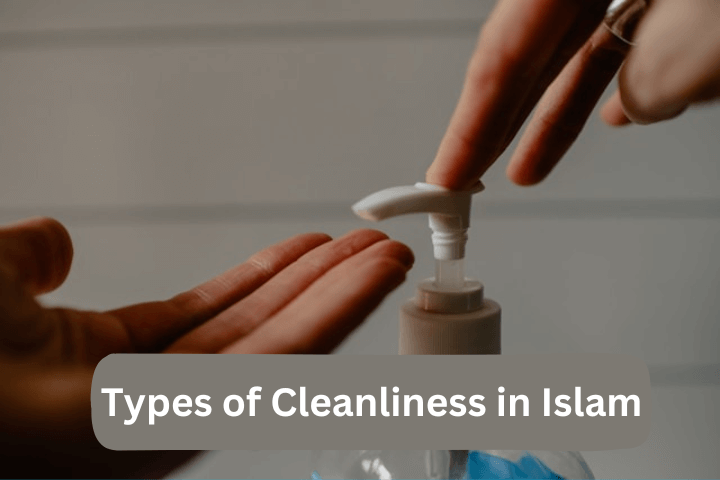Blog
Types of Cleanliness in Islam: An In-Depth Look

Islam does not just preach; it focuses on practicality. It set the standards and norms for the followers to clean themselves physically and spiritually. The Muslims are obliged to perform ablution at least five times a day before every prayer they offer.
It cleans a person in two ways: one when you perform ablution or Wudu, which involves washing your hands, mouth, nose, face, hair, ears, and feet, and the second when you prostrate yourself before God to get forgiveness.
Islam emphasizes the use of Miswak; even Prophet Mohammad SAW emphasizes it before every namaz as it helps eliminate multiple diseases and provides spiritual peace.
Muslims are encouraged to stick to cleanliness in every aspect of their lives to be better individuals in the eyes of God. They are encouraged to take baths regularly, wear clean clothes covering their entire bodies, and clean their homes and surroundings regularly.
It helps keep them safe from the devil’s attacks and black magic. Cleanliness gives you positive energy, which ultimately strengthens your willpower and gives you a robust decision-making ability.
Similarly, it is also a symbolic representation of one’s mind; for example, one who likes external cleanliness wants to keep himself internally clean and organised.
Let’s explore the basics, importance, and types of cleanliness in Islam.
What is The Importance of Cleanliness in Islam
Islam preaches ritual purity along with personal cleanliness. Abu Malik Ash’ari reported in Sahih Muslim, “Cleanliness is half of faith.” This hadith strongly draws attention to purity, making it part of the faith. Purity is a basic human need; no one can serve without it.
Similarly, `A’ishah reported a hadith in An-Nasa’i and Ibn Khuzaimah, “The miswak (a twig used for tooth brushing) cleanses and purifies the mouth and pleases the Lord.” Another hadith reported by Abu Hurairah in Al-Bukhari and Muslim is that “Five practices are of the fitnah (natural disposition): circumcision, shaving the pubic region, clipping the nails and cutting the mustaches short.”
Moreover, Islam even offers forgiveness when you purify yourself on Friday as Abu Dharr reported in Al-Bukhari, “Whoever takes a bath on a Friday and does it well, and purifies himself and does it well, and puts on his best clothes, and puts on whatever Allah decrees for him of the perfume of his family, then comes to the mosque and does not engage in idle talk or separate (pushing between) two people; he will be forgiven for (his sins) between that day and the previous Friday.”
Reading these ahadith gives you an idea about how Islam preaches cleanliness to prevent illness and diseases and promote health and a sense of mutually respected community.
What is The Basic Form of Cleanliness in Islam?
Taharah is Islam’s basic cleanliness. It is a state of ritual purity. It mainly consists of two primary practices: Wudu, also called Ablution, and Ghusl, also called Ritual Bath.
Wudu is performed every day at least five times before every prayer. On the other hand, ghusl is quite specific; it is performed in certain conditions. It is performed after having sexual intercourse, menstruation in females, and after childbirth as well. Also, for other reasons that make you ritually impure, you must perform Gusl.
Hazrat Abu Huryra reported in Al-Bukhari that Prophet Mohammad SAW said: “It is Allah’s right on every Muslim that he should bathe (perform the ghusl) once in seven days.”
Similarly, according to another hadith reported by Yaʿla (ra) in Al-Nasa’i, al-Ghusl, 7, Once the Prophet Mohammad (saw) saw a man performing the ghusl in an open place. Prophet SAW ascended the minbar and praised Allah. Then he said, “Allah, the Mighty, and Sublime, is stoic, modest, and concealing, and He loves modesty and concealment. When any one of you performs the ghusl, let him.”
Types of Cleanliness in Islam
There are multiple types of cleanliness in Islam, including:
- Physical Cleanliness: It includes taking physical baths. It also includes performing Wudu and Ghusl. But it’s not merely physical cleanliness. Prophet Mohammad SAW was very committed to this, and he showed his commitment by performing a bath before Friday prayer, trimming his nails, using fragrance, and cleaning his teeth daily.
- Ritual Cleanliness: It includes cleaning yourself for ritual obligations like performing ablution and ghusl.
- Spiritual Cleanliness involves: the cleanliness of your actions and intentions. It is the best way to get closer to God, as Allah likes those who clean their hearts just for the sake of God. When you avoid following your Nafs, your heart starts guiding you in the right way by the Grace of the Almighty.
- Moral Cleanliness: involves avoiding lying, backbiting, offensive language, and cheating. Islam strictly prohibits these acts and has issued substantial penalties in this world and the next world. Another hadith, quoted in Sahih Bukhari, says that Prophet SAW said, “Whoever removed a harmful thing from another’s path, good deeds will be recorded for him”.
Recommended for You:
What Does Allah Say About Cleanliness?
Allah strictly emphasises cleanliness multiple times in the Quran. In Surah Al-Baqarah, Allah says, “Indeed, Allah loves those who are constantly apologetic and who [ constantly strive to] purify themselves.”
Similarly, in surah Al-Ma’idah Allah says, “O you who have believed, when you rise to [offer your] prayer, wash your faces and your forearms to the elbows. And wipe over your heads, and wash your feet to the ankles. And if you are in a state of janabah, then clean yourselves.” This verse directly emphasises the Taharah, including Wudu and Ghusl.
Moreover, Allah says in Surah Al-Baqarah verse 151, “We have sent among you a messenger [prophet] from yourselves. He recites to you Our verses and purify you and teach you the Book and wisdom. And he teaches you that which you did not know”.
In another verse of the Quran, Allah says in surah Al-Anfal, “Remember when He [ Allah ] overloaded you with sleepiness [giving] security from Him. And he sent down upon you from the sky a rain by which to purify you. And he removes from you the evil [suggestions] of Satan and to make faithful your hearts and firmly plant your feet thereby”. This verse clarifies how Allah purifies us with water.
Final Thoughts
Islam is a natural religion, meaning every act emphasised by Islam is logical and has a deep philosophy and science. Today, even after around 1400 years, science has been exploring that Islam provides true security and safety regarding physical, mental, and spiritual health.
Multiple verses of the Quran and Ahadith strongly bring cleanliness to human attention, and Prophet Mohammad SAW had shown commitment to cleanliness, adopting it personally to set the example.
We should follow all types of cleanliness in Islam and the teachings of Islam for our mental and physical peace. We should not only clean ourselves physically, but we also need to work on spiritual cleanliness.
As Islam told us, cleanliness is half of our faith, so we can’t be true Muslims without strictly adopting cleanliness in our lives.
